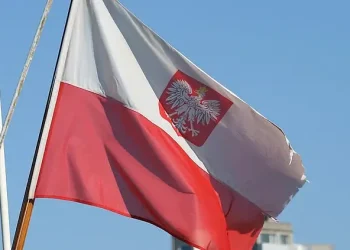The G7 foreign ministers and the EU High Representative have expressed deep concern over the escalating tensions in the Middle East.
In a joint statement issued on August 4, 2024, they urged all parties involved to refrain from violence and engage in constructive dialogue to prevent a broader conflict in the region.
Joint Statement by the G7 and EU
“We, the G7 Foreign Ministers of Canada, France, Germany, Italy, Japan, the United Kingdom and the United States of America and the High Representative of the EU, express our deep concern at the heightened level of tension in the Middle East, which threatens to ignite a broader conflict in the region.
We urge all involved parties once again to refrain from perpetuating the current destructive cycle of retaliatory violence, to lower tensions and engage constructively toward de-escalation. No country or nation stands to gain from a further escalation in the Middle East.”
Escalation in Lebanon
The situation in Lebanon has been deteriorating rapidly, with multiple countries issuing urgent evacuation advisories for their citizens. This widespread concern highlights the potential for conflict between Israel and Hezbollah, creating a highly volatile environment.
New Developments:
- Evacuation Advisories: The UK, US, Sweden, Jordan, Germany, Netherlands, Canada, North Macedonia, and Kuwait have all advised their citizens to leave Lebanon immediately.
- Risk of Conflict: The likelihood of a significant conflict between Israel and Hezbollah has increased, with both sides engaged in a series of retaliatory attacks.
- Recent Clashes: Since October 2023, there have been over 4,400 rocket, missile, and other attacks exchanged between Israel and Hezbollah, escalating tensions further.
Hezbollah’s Increased Capabilities
Hezbollah has significantly bolstered its military strength since previous conflicts, now possessing an estimated stockpile of 120,000 to 200,000 missiles and rockets of various ranges.
This increased firepower has heightened the potential for a destructive conflict in the region.
Historical Context:
- Previous Conflicts: Israel and Hezbollah have previously engaged in wars in 1996 and 2006. Despite intense fighting, Israel was unable to decisively defeat Hezbollah in both instances.
- Recent Incidents: July 2024 witnessed several significant clashes, including Israeli airstrikes that killed Hezbollah commanders and Hezbollah rocket strikes on Israeli territory.
Impact on Gaza Ceasefire Talks
The ongoing conflict between Israel and Hezbollah is complicating ceasefire negotiations in Gaza. Officials from Israel, Qatar, Egypt, and the US have been meeting to discuss a ceasefire, but these efforts face significant challenges.
Hezbollah’s Stance:
- Hezbollah has stated that it will not cease its attacks on Israel until a permanent ceasefire in Gaza is achieved. This position ties Hezbollah’s actions closely to the situation in Gaza.
- Regional Reactions: The US involvement and its support for Israel have contributed to anti-US sentiments in the region. Hezbollah’s firm stance on a Gaza ceasefire reflects broader regional frustrations with US policies.
International Diplomatic Efforts
The United States and other countries are actively working to prevent a wider regional war, emphasizing diplomatic solutions to de-escalate tensions between Israel and Hezbollah. However, these efforts face substantial challenges.
Diplomatic Challenges:
- US Efforts: Led by diplomats such as Amos Hochstein, US efforts are focused on reducing Hezbollah’s threat and facilitating the return of displaced individuals. However, Hezbollah’s insistence on a Gaza ceasefire complicates these efforts.
- UN Involvement: The UN Secretary-General has called for an urgent ceasefire along the Lebanon-Israel border, highlighting the potential for a broader conflict with devastating regional consequences.
Countries Issuing Evacuation Advisories
Country |
Advisory Details |
|---|---|
| United Kingdom | Urgent evacuation of citizens from Lebanon |
| United States | Urgent evacuation of citizens from Lebanon |
| Sweden | Urgent evacuation of citizens from Lebanon |
| Jordan | Urgent evacuation of citizens from Lebanon |
| Germany | Urgent evacuation of citizens from Lebanon |
| Netherlands | Urgent evacuation of citizens from Lebanon |
| Canada | Urgent evacuation of citizens from Lebanon |
| North Macedonia | Urgent evacuation of citizens from Lebanon |
| Kuwait | Urgent evacuation of citizens from Lebanon |
This table highlights the widespread international concern over the escalating situation in Lebanon and the potential for conflict in the Middle East.
The Final Word
The G7 foreign ministers and the EU High Representative’s joint statement underscores the critical need for de-escalation and dialogue in the Middle East.
As tensions rise, the international community’s role in advocating for peace and stability becomes ever more crucial.
The situation remains fluid, and further developments could occur rapidly, necessitating continued vigilance and diplomatic efforts to prevent a broader conflict.
Sources: THX News & Global Affairs Canada









